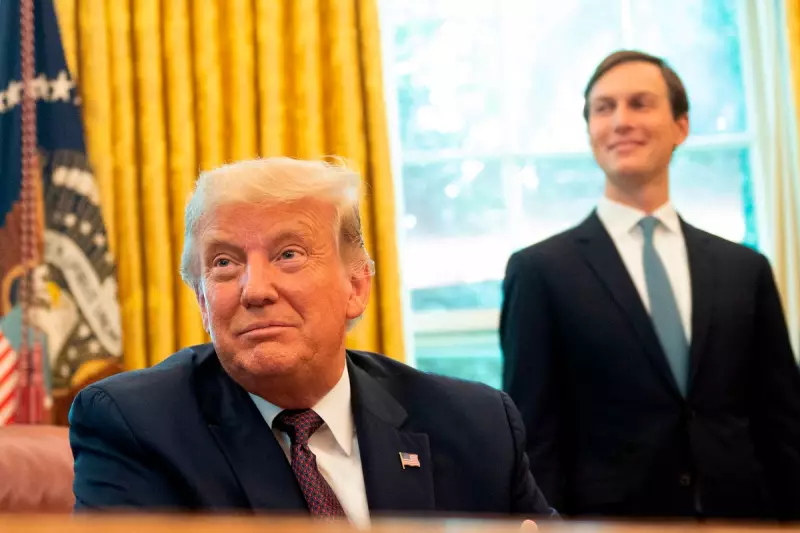
In a move that has sent shockwaves through diplomatic circles, former US President Donald Trump and his son-in-law Jared Kushner have articulated a highly controversial vision for a post-conflict Gaza, drawing immediate and fierce criticism from seasoned Middle East experts.
During a recent interview, Kushner, who served as a key architect of Trump's Middle East policy, provocatively described Gaza's Mediterranean coastline as "very valuable" and suggested the beleaguered strip could be bulldozed to make way for lucrative "waterfront property." These remarks, perceived by many as shockingly dismissive of the ongoing humanitarian catastrophe, have been labelled as "completely devoid of morality and humanity" by Lord Mark Malloch-Brown, a former UK Foreign Office minister and deputy to ex-Prime Minister Tony Blair.
A Vision Met With Widespread Condemnation
The proposed approach, which appears to prioritise economic potential over human suffering, has been met with universal disdain from analysts and politicians alike. Critics argue that such statements fundamentally ignore the complex political and humanitarian realities on the ground, reducing a decades-old conflict to a mere real estate opportunity.
Lord Malloch-Brown did not mince words, stating that the Trump-Kushner doctrine for the region is "unbelievably one-sided and completely nuts," highlighting a dangerous oversimplification of one of the world's most intractable disputes.
The Shadow of the 'Deal of the Century'
This incident has refocused attention on the Trump administration's 2020 peace plan, the so-called "Deal of the Century," which was overwhelmingly rejected by Palestinian leaders for heavily favouring Israeli interests. Kushner's latest comments are seen as a continuation of a policy framework that sidelines Palestinian statehood and self-determination, advocating instead for economic solutions to profoundly political problems.
The backlash underscores the deep and lingering divisions in approaches to Middle East peace, contrasting the Trump team's economic-centric vision with more traditional, diplomacy-led efforts favoured by other international actors.
Implications for Future US Foreign Policy
With Trump positioning himself for a potential return to the White House, these remarks offer a stark preview of the foreign policy direction a future administration might take. The comments have likely damaged credibility with key allies in the region and beyond, raising serious questions about the US's role as a neutral broker in any future peace negotiations.
The international community continues to watch closely, as such statements have the potential to inflame tensions further and undermine ongoing efforts to achieve a sustainable ceasefire and a lasting political solution for both Israelis and Palestinians.





